Rights to the City
Session Summary
This session is expected to include topics on
- The rights to access basic services, healthcare, education, shelter, and employment;
- Gender, child protection, and displacement;
- Governance;
- Urban development agenda, urban governance, and management; and
- Transboundary collaboration and cooperation.
Moderator
Antje Missbach
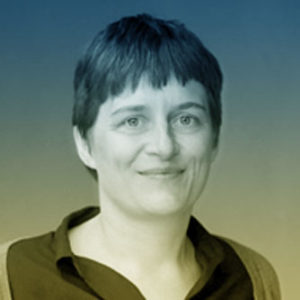
Antje Missbach is professor of sociology, specializing in migration and mobility. Her key interest areas include forced displacement and irregularized maritime passages. She is currently finalizing a book on “The criminalization of people smuggling in Indonesia-Australia: Asylum out of reach”.
Speakers
Gul Inanc

Gül İnanç (holds a joint appointment) as a faculty at School of Art, Design and Media, NTU, Singapore and as the founding co-director of Centre for Asia Pacific Refugee Studies (CAPRS), University of Auckland, New Zealand.She is a historian of modern West Asian diplomacy and published several books and articles on the topic. Her other expertise are in the areas of cultural heritage education for peace and inclusive global higher education for the displaced communities. She is the founder of Opening Universities for Refugees (OUR) an educational initiative which works closely with the displaced communities in Asia Pacific region, it now runs as a program under CAPRS. Her latest publication is Access to Higher Education, Refugees’ Stories from Malaysia (Routledge) co-authored with Lucy Bailey and she has an upcoming co-edited book NGOs and Forced displacement in Asia Pacific with Themba Lewis in early 2022 (Routledge).
Lilianne Fan

Lilianne Fan is the International Director and cofounder of the Geutanyoe Foundation, a regional humanitarian organization based in Kuala Lumpur Malaysia, and Aceh, Indonesia. She is also Chair of the Asia Pacific Refugee Rights Network’s Rohingya Working Group.
Authors & Co-Authors
Okky Nursafitri

Okky Nursafitri is a clinical psychologist candidate. She lives in Surabaya, Indonesia. She has a passion for social justice and psychological well-being with experience in community-based research to help underserved communities. She is interested in issues surrounding refugees particularly. She is always looking for a link between the local and the global, both in identifying problems and finding solutions. She wishes that she will work for refugee communities someday to helping deliver aid, document oral tradition, and provide psychological rehabilitation. Contact her at nursafitriokky@gmail.com
Roshni Sharma
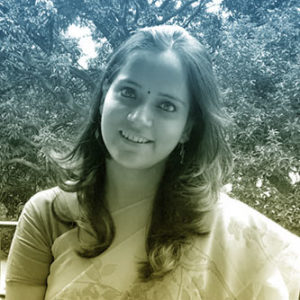
Roshni Sharma is a research scholar, pursuing her doctoral degree from Jain (Deemed-to-be) University, Bengaluru, India. Her research topic is Refugee Women and Identity. Prior to this she has worked on Partition Literature and Refugee Woman in India for her M.Phil. dissertation, submitted to University of Delhi. Her interest comprises of women issues specially in understanding the way literature is written by and on women. Her previous work includes “Re (Presenting) Refugee Women in Bengal’s Partition Narratives” in Amit Ranjan (ed) Partition of India: Postcolonial Legacies (Routledge) and Image of Refugee Women in Post Partition Literature in Arts and Education, International Academic Journal.
Vina Sanchia Arimbi
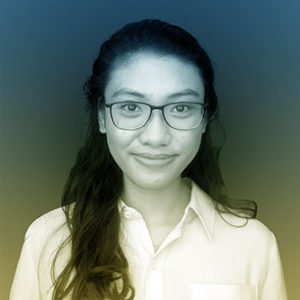
Being interested in humanitarian issues, especially children, education, and poverty, Vina has started her career in an international non-governmental organization as a social worker for unaccompanied and separated children refugees since 2020. Before working, Vina was a student at President University and graduated with praise (cumlaude) in Bachelor of Arts of International Relations in 2020. During her university life, she was active in the President University Student Union, or usually known as BEM in Indonesian. In 2018, she had an opportunity to serve as vice president of the organization. Her volunteer experience has begun since she was in senior high school, she became a volunteer teacher for marginalized children and the volunteer experience continues until now. Now, she is actively participating in a mental health social enterprise called Sehat Jiwa.
Ranggi Lukfi Aprilianzah
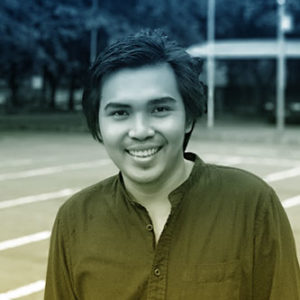
Ranggi Lukfi Aprilianzah, 24 years old, was born and raised in a small and poor region in East Java that made him close with the social problem issue such as poverty, child marriage (of which my mother herself was the “victim”), and any other social problems. In a way, he decided to take social welfare as his major. In college, he was involved with various community development and volunteering activities. He was a part of Gerakan UI Mengajar and he is also a part of Rumah Faye volunteers. Rumah Faye is a Non-Government Organization focused on freeing Indonesian children from trafficking, abuse, and exploitation. His professional journey began in 2019. After he graduated, he worked as a researcher at a corporate social responsibility consulting services company, specializing in corporate social program management and stakeholder management. At the beginning of 2020, he began to work as a social worker at an international faith-based organization focusing on sustainable responses to hunger, poverty, displacement, and disaster. He works with refugees, especially the unaccompanied and separated children in Jakarta. His primary responsibility is to empower the unaccompanied/separated children (refugees/asylum seekers) and to improve their physical, social, and psychological well-being, including their safety and security.
Anak Agung Istri Diah Tricesaria
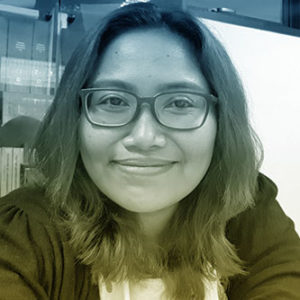
Anak Agung Istri Diah Tricesaria is an Indonesia based community engagement officer of HOST International. Her works focus on collaborating with refugee and host community on empowerment opportunities that would benefit both. Previously, she worked closely to refugee community in urban city (Jakarta and Bogor) as a part of JRS Indonesia Be Friend Asylum Seeker project in Bogor, from 2015 to 2017. At the moment, in addition to her community engagement work, she is also involved as part of Indonesia research team for collaborative research project called Pathways to Refugee Wellbeing. The research is an initiative by Refugee Trauma and Recovery Program UNSW, HOST International, SUAKA Indonesia and Universitas Gadjah Mada, that looks at the ways of coping mechanism shaped by refugees to address their challenging living situation in transit country.
Nurul Azizah Zayzda
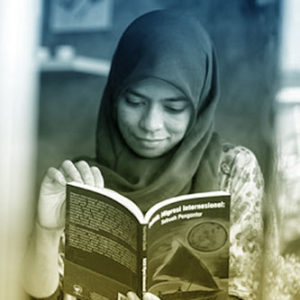
Nurul Azizah Zayzda is interested in migration and human rights studies and has published a number of works including a book titled “Politik Migrasi Internasional: Sebuah Pengantar” (Politics of International Migration: An Introduction/2018), a journal article titled “Securitization and De-securitization of Refugees in Indonesia: Its Impacts on Refugee Protection in Southeast Asia” (2017), and a book chapter titled a book chapter “Perlindungan Pengungsi Lintas Batas di Indonesia ditinjau dari Perspektif Gender: Sebuah Studi Pendahulu” (A Preliminary study on gender issues in refugees protection in Indonesia”/2020). She currently teaches in Department of International Relations, Jenderal Soedirman University, Indonesia, on the subjects including Politics of Diaspora and International Migration, Human Rights Studies, Peace Studies and International civil society and gas involved in former migrant worker empowerment activities in Banyumas, Central Java.

